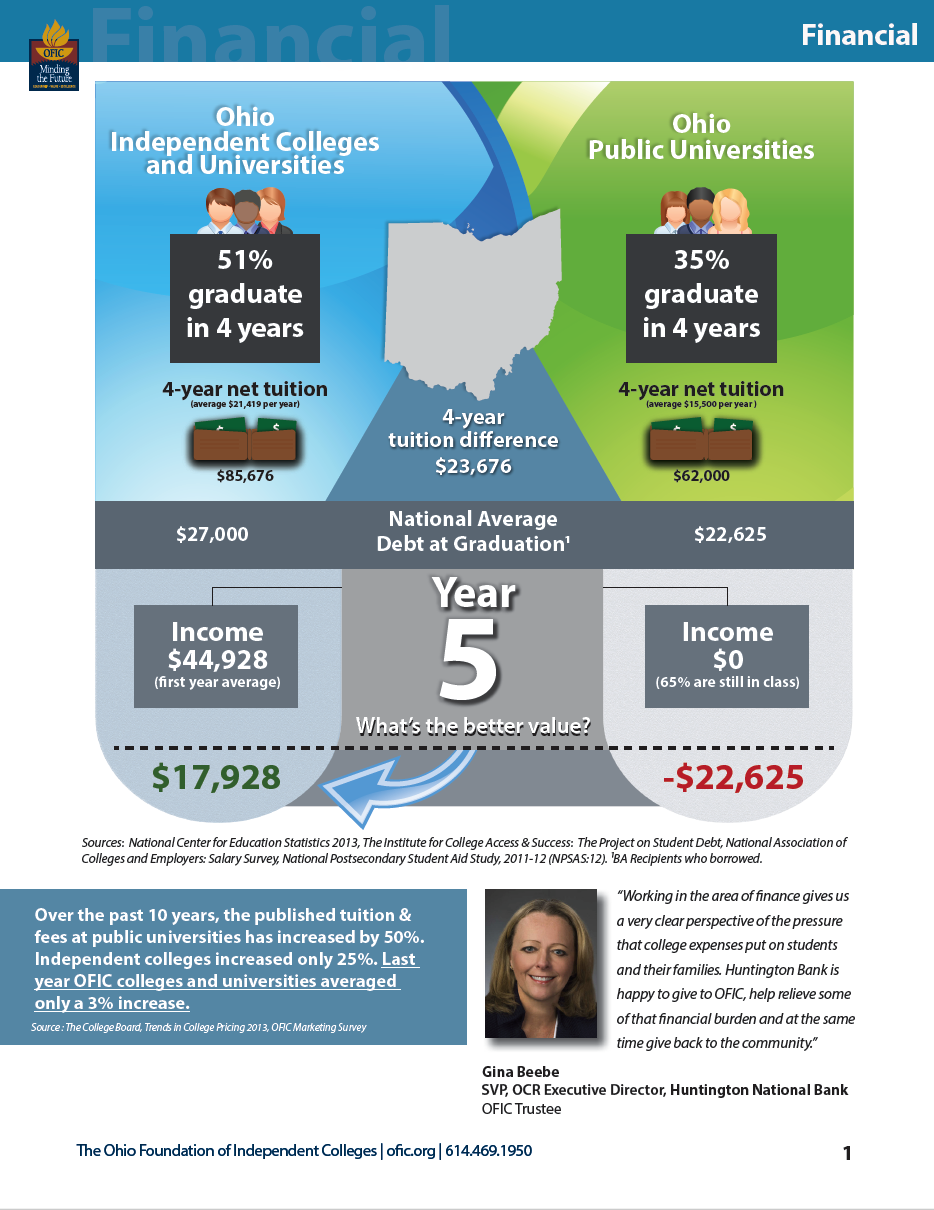Capital University names new president
Stetson University provost chosen to lead Capital University
Capital University's new president-elect spent years as a psychology professor — a background she says has been invaluable throughout her career as a higher-education administrator.
"It definitely comes in handy," said Elizabeth L. Paul this morning, after she was introduced as Capital's 16th president. She will succeed President Denvy Bowman, who said last year that he will retire in June 2016.
Being a Globally Oriented College
By Adam Weinberg
President, Denison University
What does it mean to be a globally oriented college? Are some international experiences better than others? Are colleges doing enough to integrate international students on their own campuses? And what steps can we take to improve global education for college students?
http://www.huffingtonpost.com/adam-weinberg/being-a-globally-oriented_b_8761108.html
Oberlin College music theory professor named as one of four Professors of the Year
OBERLIN, Ohio - Brian Alegant, a music theory professor at Oberlin College, was named one of four national Professors of the Year by the Council for Advancement and Support of Education and the Carnegie Foundation for the Advancement of Teaching.
Sarah Bolton named 12th president of The College of Wooster
The board of trustees of The College of Wooster has chosen Sarah Bolton, dean of the college and professor of physics at Williams College in Williamstown, Mass., to become Wooster's twelfth president. She will assume her new duties on July 1, 2016.
OFIC Announces Diversity Best Practice Awards for 2015-16
OFIC is pleased to announce that Libbey Inc. and the TimkenSteel Corporation have combined funds to award four grants of $5,000 to support diversity programs on member campuses to be implemented during the 2015-16 academic year. Programs address all forms of diversity (ethnic, gender, national origin [language barriers], sexual orientation, etc.) and embrace campus diversity.
Denison University
LGBTQ Online: Creating a Safe and Supporting Campus for Lesbian, Gay, Bisexual, Transgendered and Questioning students through interactive online modules for faculty, staff and students
Mount Vernon Nazarene University
The MVNU SHINE FORTH Mural Project
Otterbein University
Promoting ongoing conversations about race and privilege at Otterbein University
Wilmington College
Wilmington College CONNECTIONS
Lou Holtz: Franciscan University of Steubenville 2015 Undergraduate Commencement
Lou Holtz always provides insightful motivation and plenty of laughs.
2015 OFIC Diversity Forum Pictures
2015 OFIC Fall Diversity Forum hosted at Nationwide Hotel & Conference Center and sponsored by Libbey Inc. & TimkenSteel Corporation.
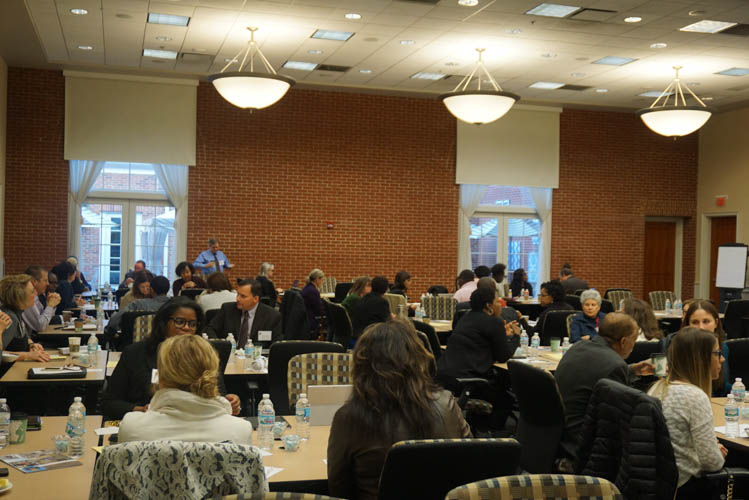
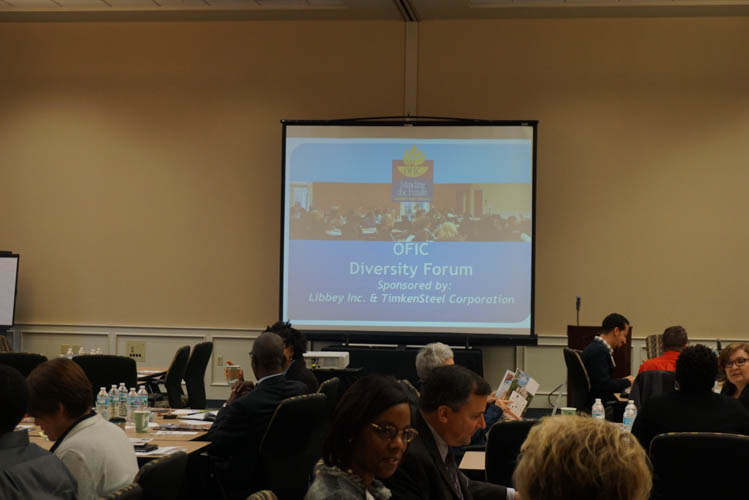
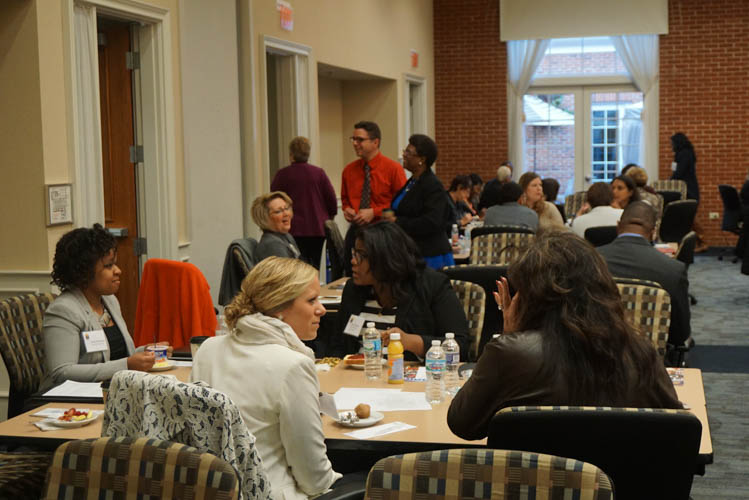
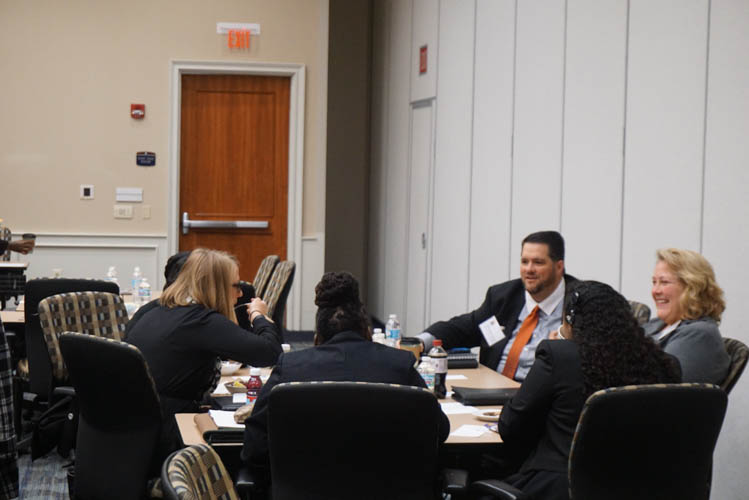
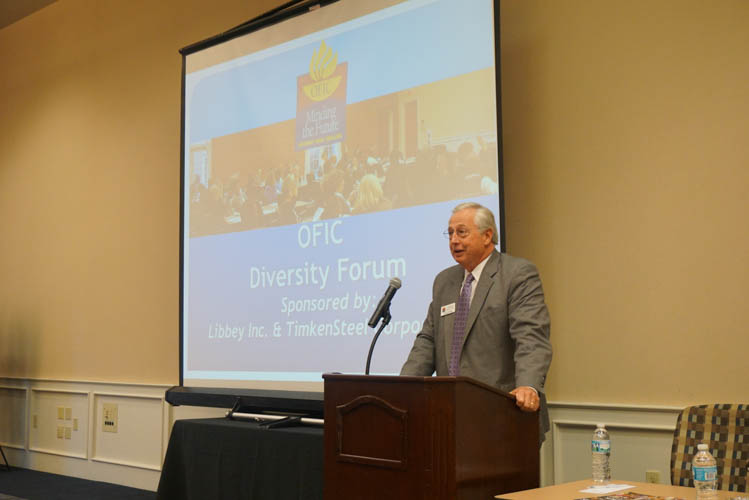
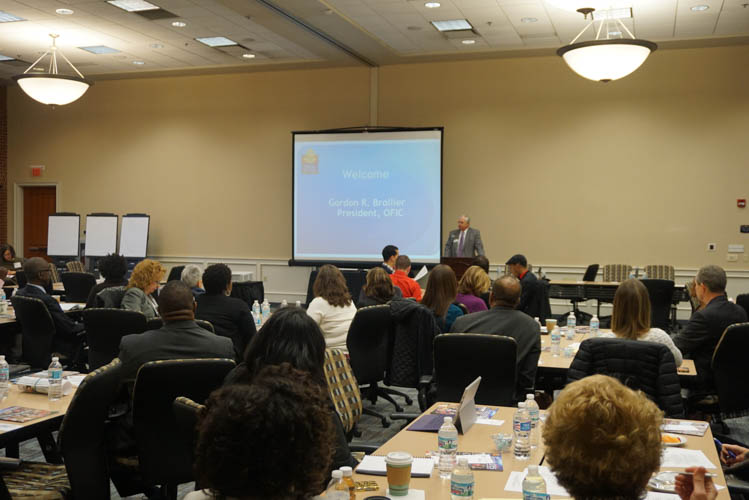
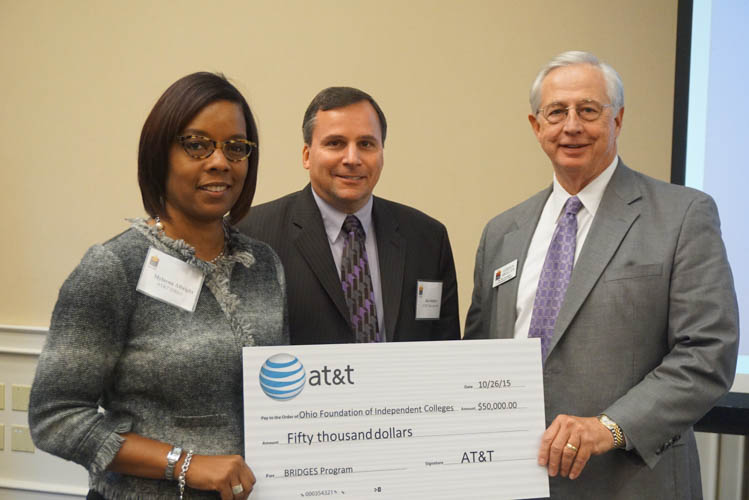

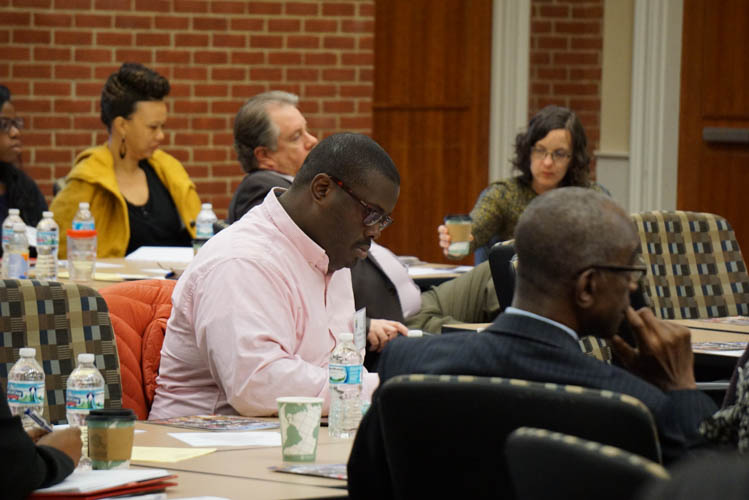

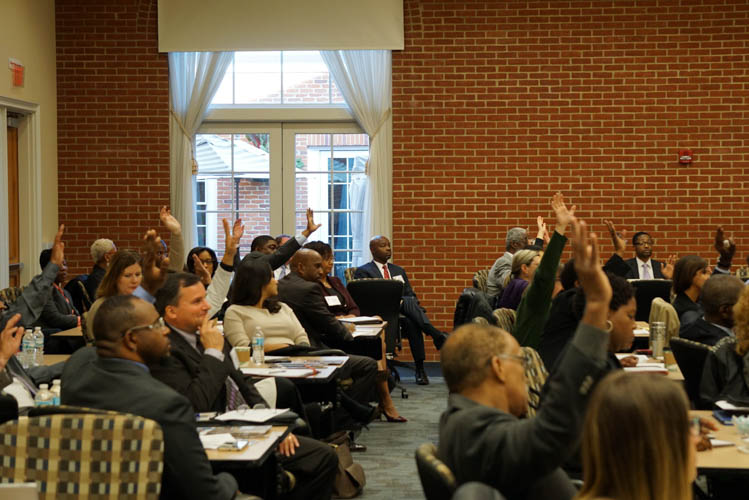
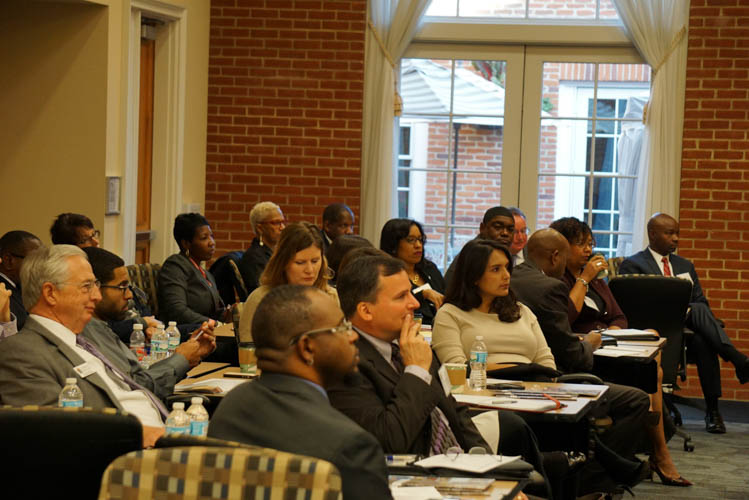

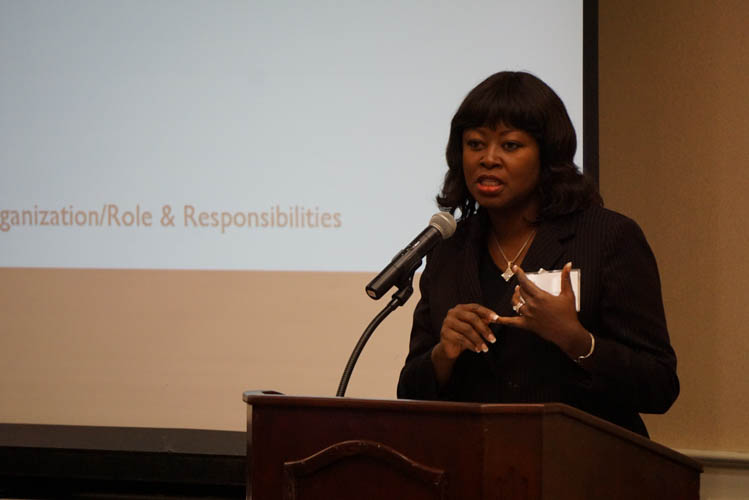
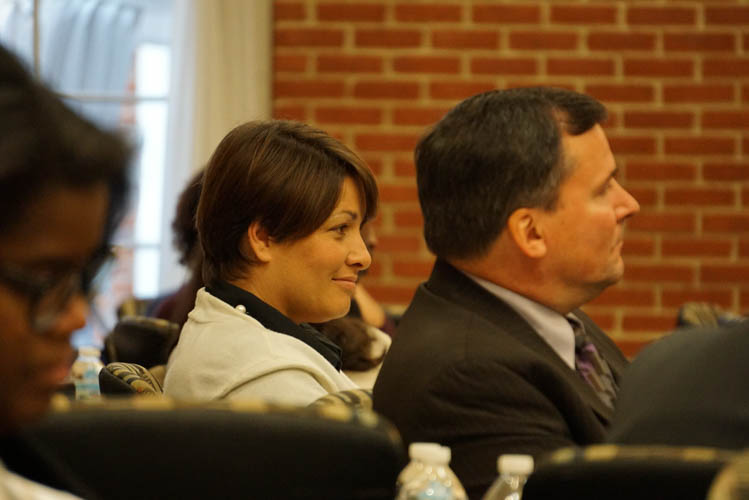
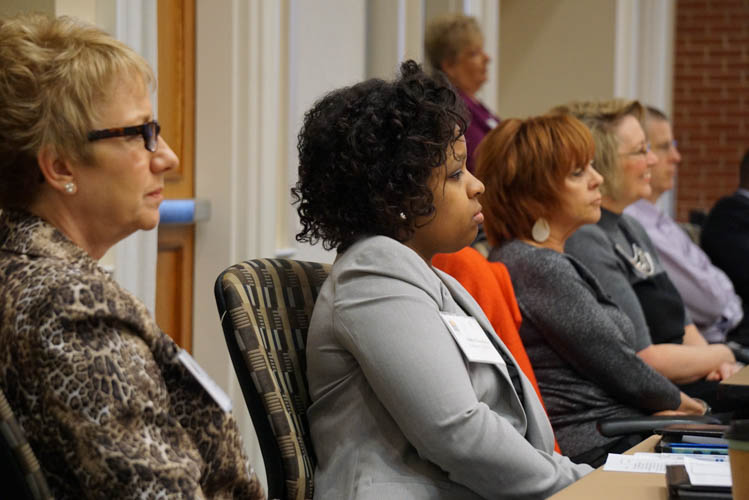
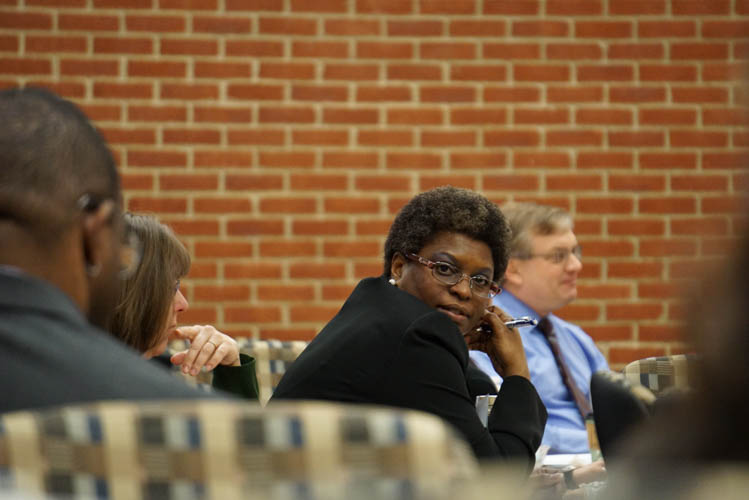
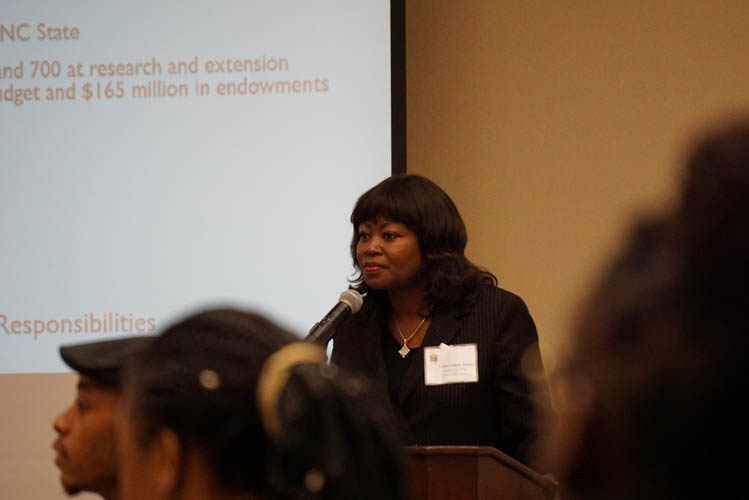
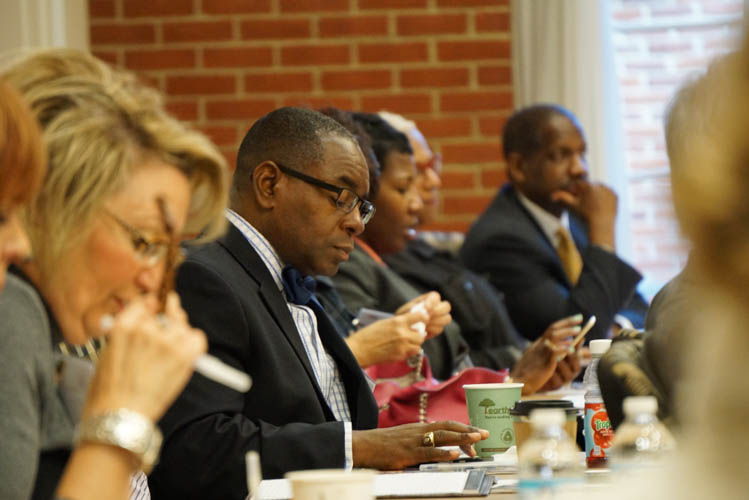
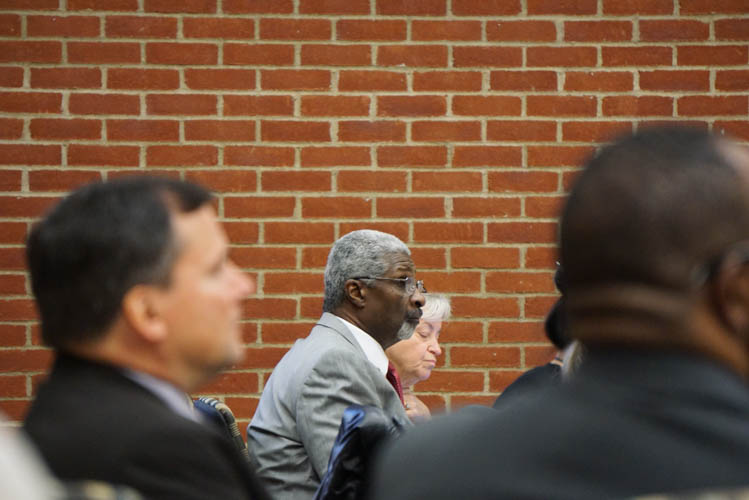
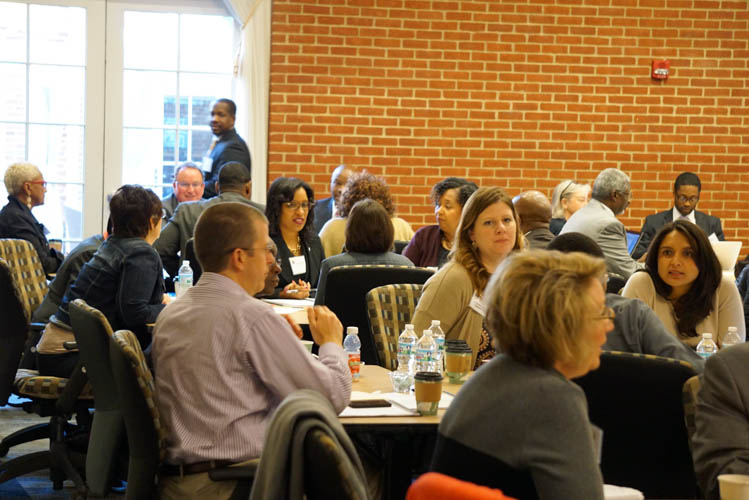

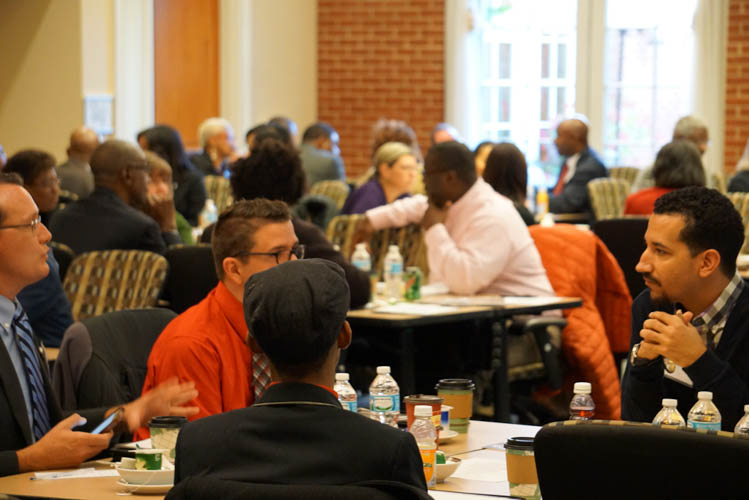
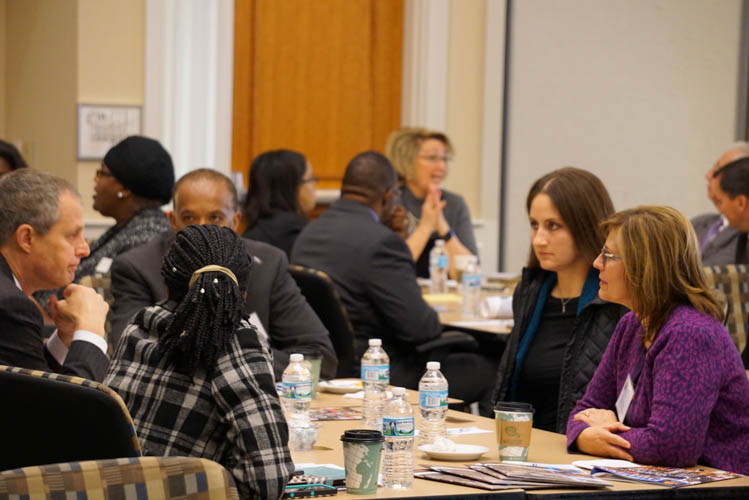
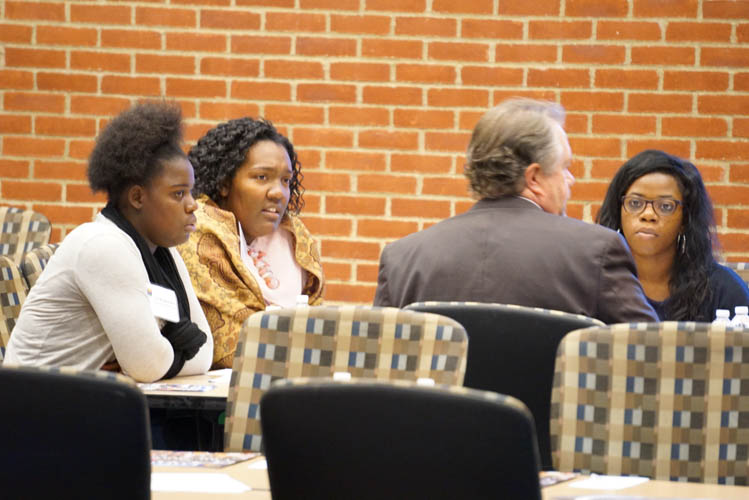
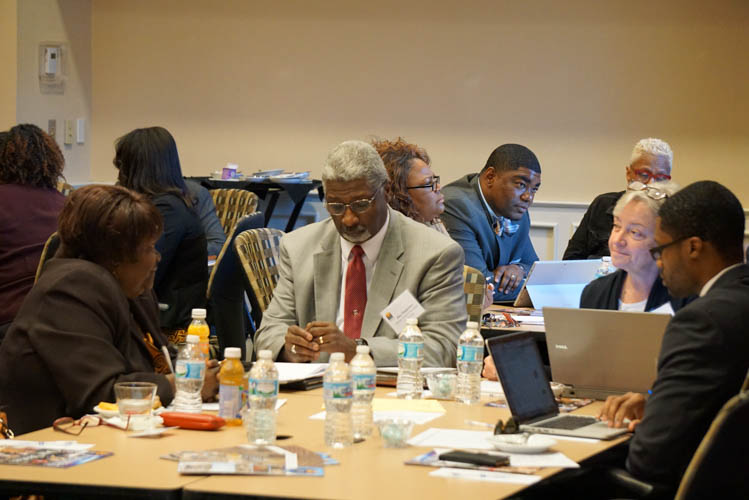

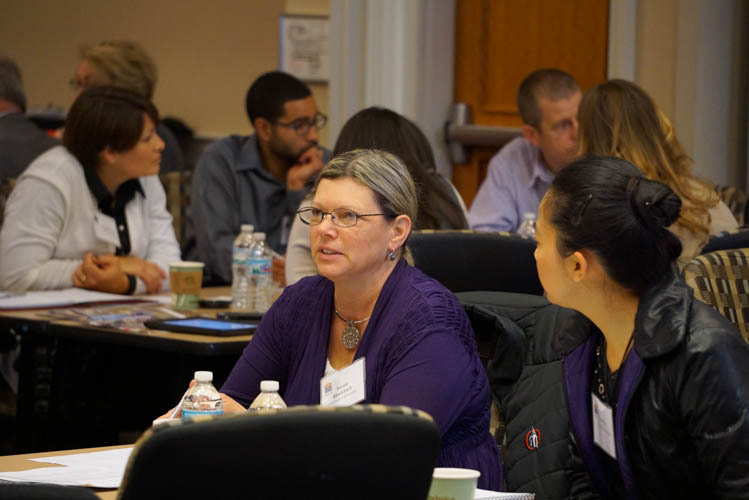
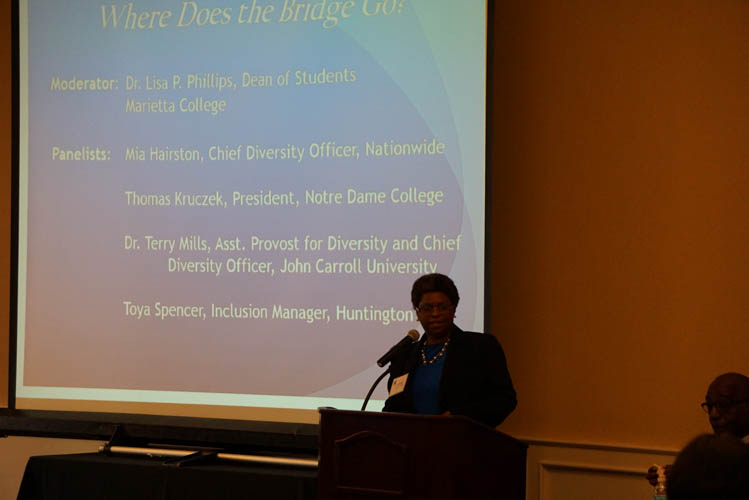
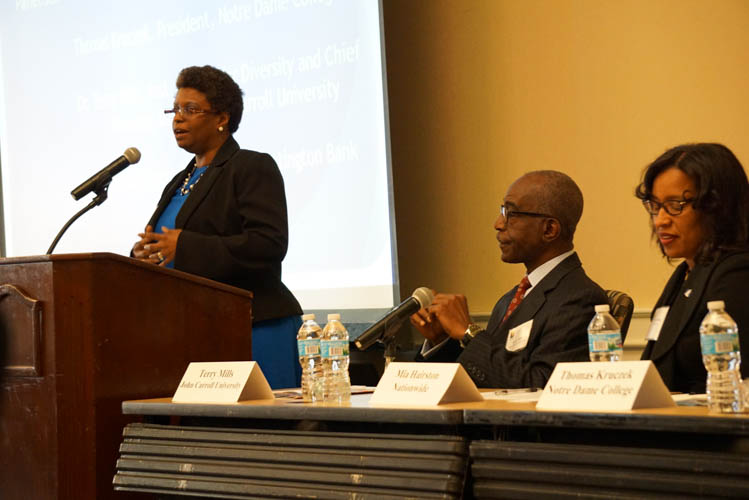
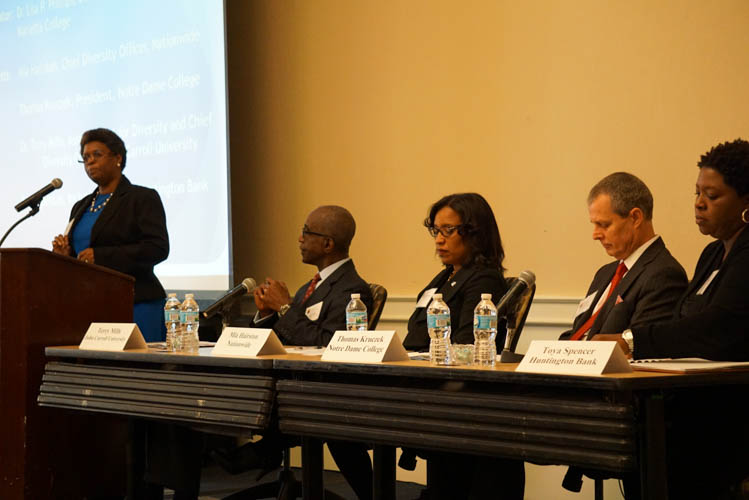
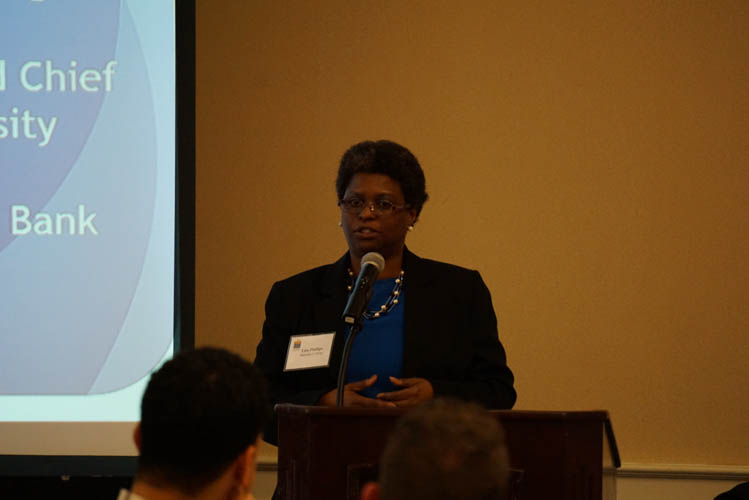
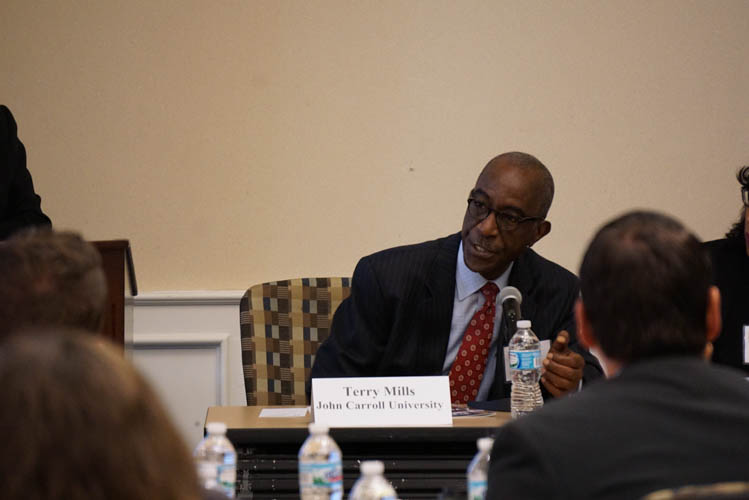
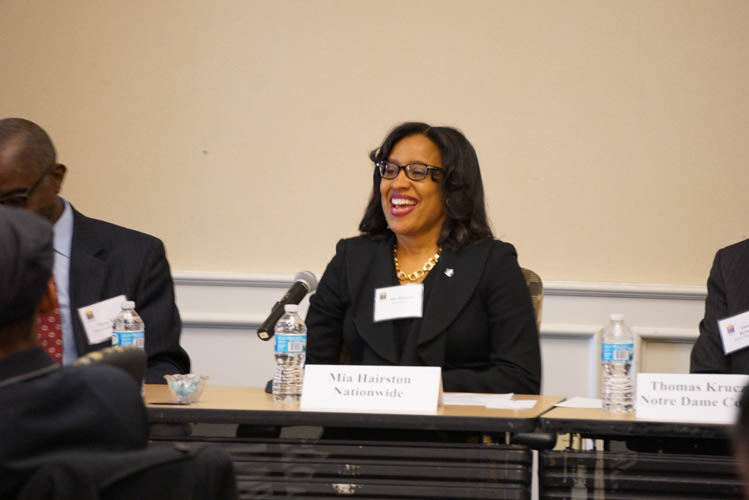
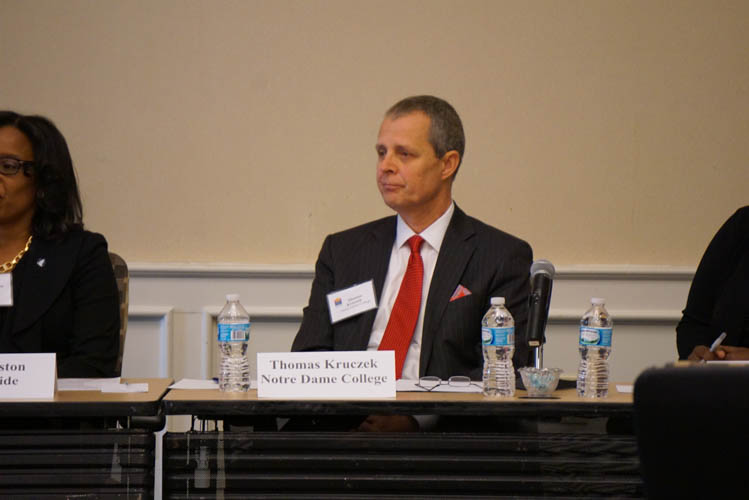
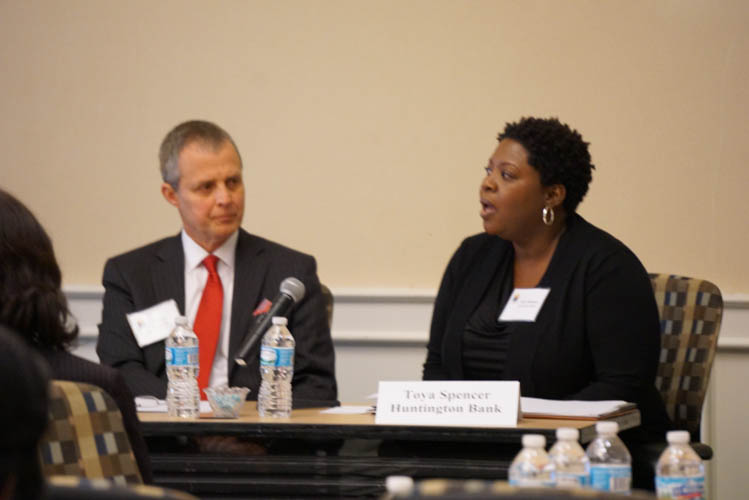
2014/15 Annual Report/Case Statement
The 2014/15 OFIC Annual Campaign was record-breaking. See how your gifts are changing the lives of the 95,000 students attending our member colleges and universities in our annual report/case statement. Also, find out how Ohio's independent colleges are making a difference by viewing the latest statistics in our graphs & supporting materials.
TaylorOswald (VOYA Foundation) presents $50,000 check to OFIC
2015 OFIC Fall Board Meeting
On the campus of John Carroll University
Pictured (L to R): Gordon Brollier, OFIC President, Eddie Taylor, TaylorOswald Founder and President, Todd Clossin, WesBanco President and CEO and Chair, OFIC Board of Trustees, Marc Byrnes, Chairman, Oswald Companies
It’s a Matter of Fit
Featured guest article from Nicholas R. Santilli, Ph.D. - Notre Dame College
Nicholas R. Santilli, Ph.D.
Vice President for Academic and Student Affairs
Professor of Psychology
Notre Dame College of Ohio
Over the past several months, I attended several professional meetings where the topic of the future of higher education was front and center. Sessions focused on the imminent demise of college as we know it replaced by the latest variety of digital education, degrees replaced by badges, flipped classes, adaptive learning, the unbundling of the educational experience, containing costs, and how unprepared today’s college graduates are for the world of work. Cutting through the static of this latest assault on the college experience and fitness of college graduates for adulthood can be exhausting. How does a thoughtful person cut through the din? In my opinion, the crux of the matter lies along these lines: the learning and developmental needs of traditional aged college students, how well the college experience meets these needs, and matching employers’ expectations with the development of contemporary, traditional-aged college graduates.
Millennials or Emerging Adults?
Not long ago I suggested the contemporary fixation on millennials is misplaced (Santilli, 2010). The conceptualization of millennials does provide convenient shorthand for today’s students: feelings of exceptionality, confidence, sheltered, team-oriented, achieving, pressured, and conventional. But do these qualities describe the 80 million millennials? I think not. Instead I suggest we think of this cohort of individuals not as millennials but as emerging adults.
The life-stage of emerging adulthood was proposed by Jeffrey Arnett in his article in the journal American Psychologist (2000) and later in his book titled; Emerging Adulthood: The Winding Road from the Late Teens through the Twenties (2004). Emerging adulthood captures a new life stage spanning the ages between 18- to 25-years old. According to Arnett, delay in age of first marriage and parenthood, prolonged time for education and assumption of adult work responsibilities, and financial dependence, have introduced a new stage in the life course that stands between adolescence and young adulthood. These five qualities define emerging adulthood:
• Identity Exploration: discerning life goals, especially in relationships and work;
• Instability: Consequence of exploration characterized by fluctuation in residence, relationships, and commitments (academic majors and careers);
• Self-focused: Normal and transitory focus on the knowledge, skills, and self-understanding necessary for adulthood;
• Feeling in-between: In transition between the teenage years and young adulthood, and;
• Age of possibilities: Individuals have an unparalleled number of opportunities to choose from to transform their lives.
In short, between 18 and 25 emerging adults seek to refine life-goals around personal relationships and vocation; experience periods of instability in life-choices around commitments to relationships, academic and vocational decisions, and residency; are intentionally self-reflective; at times show a lack of direction, and; show a degree of anxiety due to the seemingly overwhelming number of opportunities facing them. College for these individuals needs to be a developmental experience that permits them to explore opportunities, feel discomfort, reflect and act.
College and Emerging Adulthood: Train Wreck or Good Fit?
The present discourse on the college experience seems to miss this point: College is a matter of fit. Arguments around delivery systems, flipped or hybrid classes, or credentialing via badges take us down blind alleys. Each has its place. What we have neglected to discern is what educational experience best fits the students in the classroom or at the other end of the online connection. This generation of college students is the most diverse in history. Yet, we fall into the trap of considering college students as a homogeneous set, possessing more or less the same qualities (those millennial character traits). Our students are far more heterogeneous today possessing varying educational needs and demands. Veterans and adult students with transfer credit, seeking to complete college degrees are different than students fresh out of high school. Some colleges get this point while others still try to force students down the same path, through one doorway.
So, what do emerging adults need? In my opinion three things: a liberal education, current fields of study, and access to high-impact educational practices. The first two are often at odds. Liberal education, steeped in the humanities, social, and natural sciences provide the grounding in human experience upon which professional studies build. Current fields of study should be rethought, a move away from narrow, traditional majors. Instead, students should be offered educational pathways that blend and integrate knowledge from these disciplines—toward interdisciplinary studies. The modern workplace is far too complex to become overly specialized in a single area of study. The toolkit for the future requires not only knowledge of a field in depth but also knowledge of culture, history, communication, psychology, science, and technology; a blend of liberal education and professional preparation. Liberally educated professionals are what the workforce needs and a democratic republic demands.
The third educational experience, high impact educational practices (HIP), has been shown to enrich the college experience. George Kuh, architect of the National Survey of Student Engagement, has identified ten HIP’s that foster deep learning in college. The HIP’s are: First Year Seminars; Internships; Undergraduate Research; Service-Learning; Learning Communities; Capstone Projects; Writing-Intensive Courses; Global Learning; Common Intellectual Experiences, such as, general education requirements, and; Collaborative Projects (Kuh, 2008). HIP’s are not limited to specific academic majors but cut across the curriculum. These ten practices foster engagement in learning, relationships with faculty, and improve persistence and completion rates.
What’s an Employer to Do?
I often speak to employers about emerging adults in the workplace. Here is some simple advice. First, recognize that your new employee remains a work in progress. The developmental tasks of emerging adulthood continue through the mid-twenties. While some new grads will be fully engaged in making the transition to the workforce and citizenship others may not be quite “job ready.” This may be due less to lack of preparation in college and more a consequence to moving to a new and unfamiliar role: From student to employee. Second, when reviewing candidates for open positions ask them if they participated in any of the high-impact educational practices while students. The applicant may not be familiar with the term “high impact practice” but she will know the more specific terms like “internship,” “learning community,” “service-learning,” or “capstone project.” Engage your applicant in a conversation about what she may have learned by participating in the activity and how this learning may translate to their career aspirations and the specific job she seeks with your firm. Finally, ask applicants what type of academic or extra-curricular work they engaged in outside of the major. The best candidates demonstrate that they can be “more than their major.” Did they study abroad, complete a minor, or participate in performing arts? Ultimately you want a job candidate that found a way to blend his professional preparation with a liberal education experience.
Value of a college degree becomes more evident than ever (MSN Money)
© Andrew Rich/Getty Images
Factory jobs dwindled over the past several decades, and instead of low-skill, low-wage service work filling the void left by manufacturing's decline, a new report shows that college-educated workers have taken over a much bigger share of the economy.
While the makeup of the labor force has changed, the shift has not been from a manufacturing-driven economy to one underpinned by legions of people in dead-end fast-food jobs. Rather, the country's economic value is now largely propped up by college graduates.
For the report, published Monday by Georgetown University's Center on Education and the Workforce, Georgetown's Anthony Carnevale and Stephen Rose analyzed several sets of government data to show that job opportunities for college-educated workers have grown, and college graduates produce more than half of the country's economic value. From 1967 to 2007, the share of high- skill management and professional jobs rose 14 percent, and that those jobs represent 35 percent of all U.S. jobs. Over the same period, opportunities for low-skill workers declined 10 percent. These low-skill labor roles, such as fast-food server, retail worker, and dishwasher, now make up only 29 percent of jobs...
2012 OFIC Service-Learning Leadership Award recipient Jenelle Krumlauf named to Business First's Forty under 40
Jenelle Krumlauf, founder and president of Nellie’s Catwalk for Kids, and 2012 OFIC Service-Learning Leadership award recipient (Ohio Dominican University '13), has been named to Columbus Business First's Forty under 40 list this year.
Ashland University Names New President
ASHLAND, Ohio – The Ashland University Board of Trustees has announced that it has hired Dr. Carlos Campo as the 30th president of Ashland University. Campo has considerable experience in higher education, including serving as president of Regent University. He will start in his new role on June 1, 2015.
“We have conducted a thorough, national search for our next leader, and we are very excited to be able to announce that Dr. Carlos Campo has been selected to serve as the next president of Ashland University,” said AU Board Chair Lisa Miller. “Dr. Campo is a proven, highly motivated and accomplished higher education professional with more than 25 years of exemplary experience, from professor to university president.”
Campo replaces Dr. William Crothers, who is serving as an interim president for one year while the board launched a national search for the new president.
The newly selected president and his wife, Karen, said they were anxious to get settled in Ashland.
“Karen and I look forward to getting to know the Ashland community,” Campo said. “In our brief visit, we were impressed by how kindly we were treated and the real sense of community we felt.”
Campo also noted that “the Ashland University community blends excellence and tradition in such a way that reflected their commitment to quality and the individual. We are honored and blessed to become a part of Eagle Nation.”
Why more U.S. colleges will go under in the next few years (MSN)
Other schools may have the same fate as Sweet Briar College
© Charles Ommanney/Getty Images Scenes from the Sweet Briar College in Sweet Briar, Virginia.
We don’t need more STEM majors...
We don’t need more STEM majors. We need more STEM majors with liberal arts training.
The ability to draw from other disciplines produces better scientists. (The Washington Post)
In business and at every level of government, we hear how important it is to graduate more students majoring in science, technology, engineering and math, as our nation’s competitiveness depends on it...
Why Top Tech CEOs Want Employees With Liberal Arts Degrees
Read: Why Top Tech CEOs Want Employees With Liberal Arts Degrees






